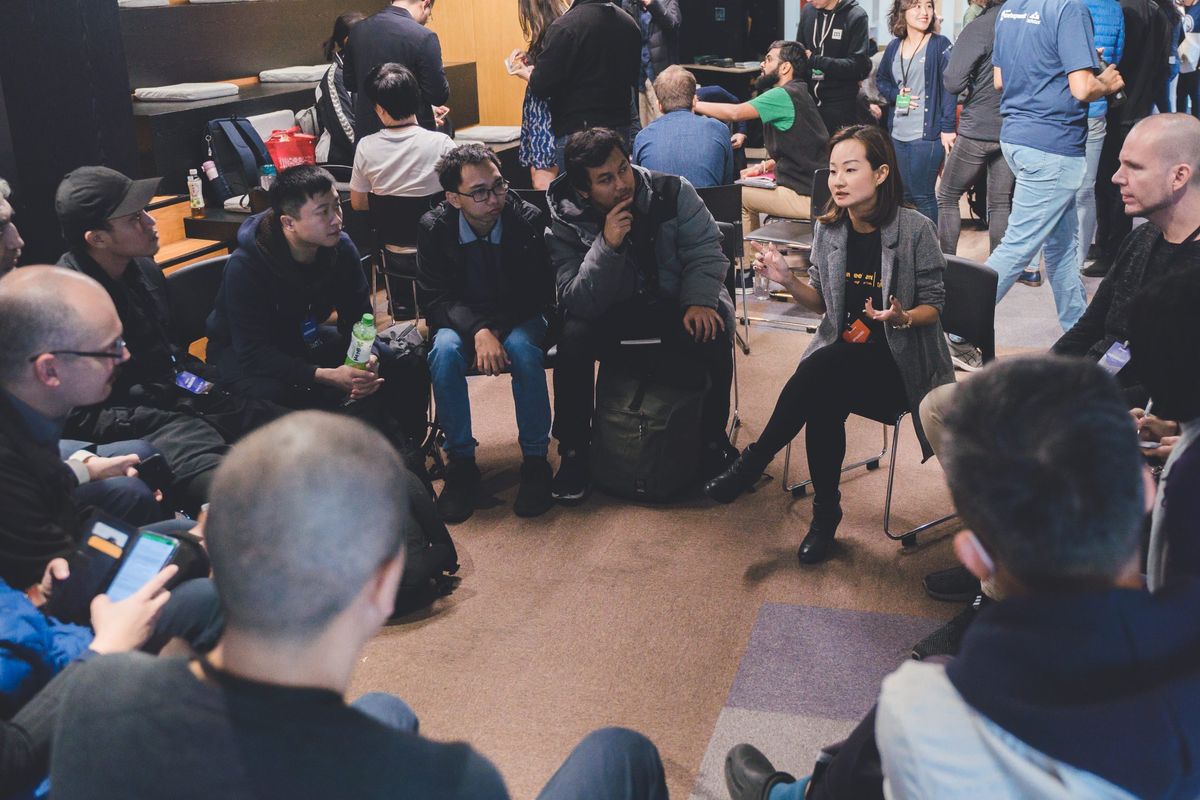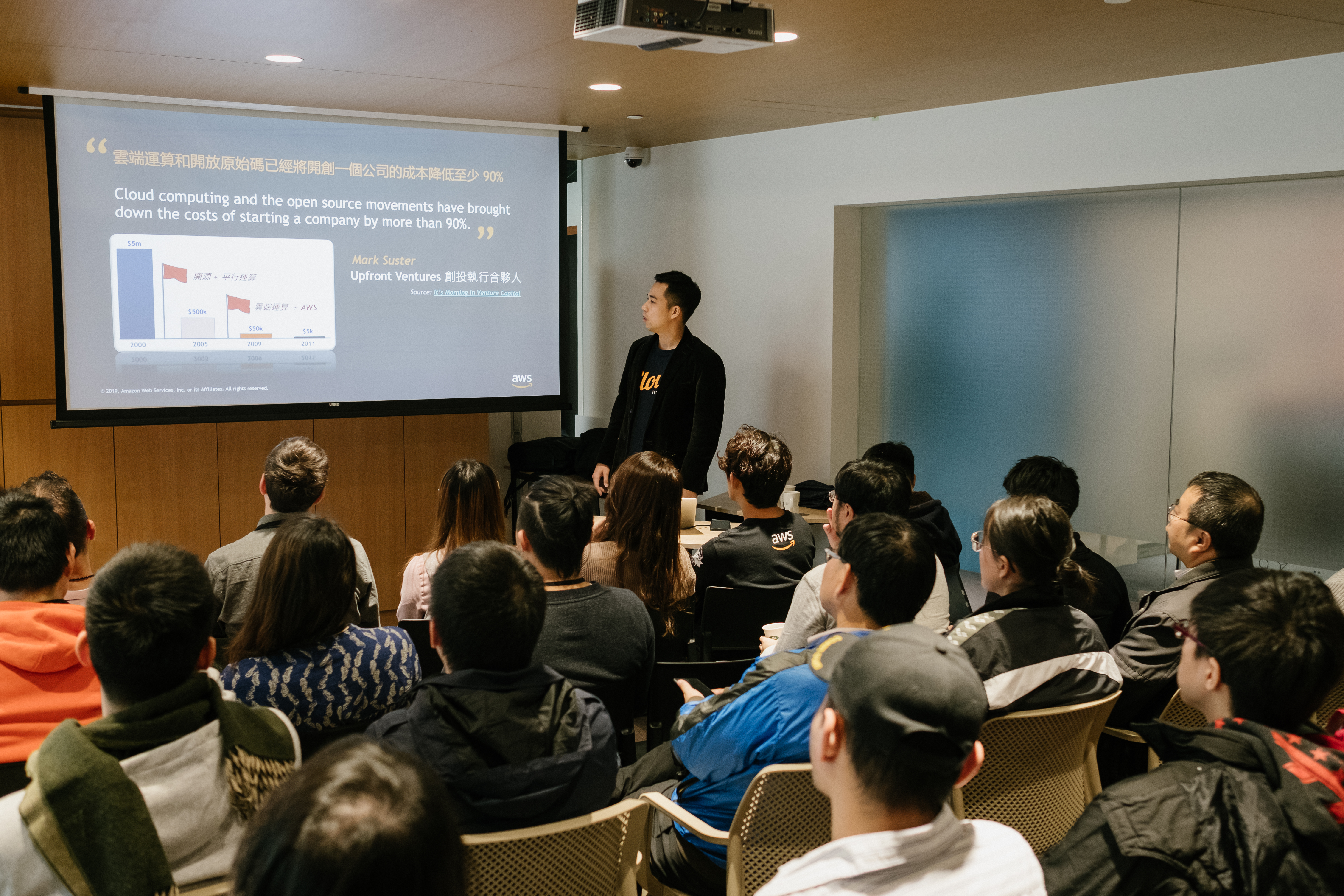Techstars’ APAC Regional Director Oko Davaasuren talks about entrepreneurship in Asia

A few minutes every morning is all you need.
Stay up to date on the world's Headlines and Human Stories. It's fun, it's factual, it's fluff-free.
There are two kinds of energy: potential and kinetic energy. Kinetic energy is the kind that we see like a ball rolling down a hill, but potential energy is just the ball sitting still at the top of the hill, waiting to thrust into action.
Both these energies are apparent in Oko Davaasuren, his work and the thousands of entrepreneurs and companies he and Techstars nurture around the world. They’re also revealed in mini bursts during our conversation about his journey, Techstars and what he hopes to achieve in the near future.

Born and raised in Mongolia, Davaasuren is the regional director in the Asia-Pacific (APAC) for seed accelerator company Techstars. Davaasuren has long been passionate about assisting entrepreneurs, or as he aptly calls them “the brave ones,” as they chase their dreams.
“We want to be the global network that helps entrepreneurs,” Davaasuren explains with a burning fire in his eyes that instilled inspiration even through Zoom.
When Davaasuren first started working in the field, he was working for a nonprofit organization called UP Global which was acquired by Techstars back in 2015. “When I took the job, I moved to Malaysia which is where I was based out of. That’s kind of how the whole journey started.” Like Techstars, UP Global’s mission was to mentor and lead entrepreneurs as they begin the challenging journey of starting a business.
Unlike an investment firm, a seed accelerator provides more than just capital, or money, for a startup, according to Davaasuren.
“Even if you are given enough capital, you’re still going to have to learn to make your product. You still have to learn to manage people. You still have to learn to scale your services, and that’s the kind of thing seed accelerators can provide with the network and experience.”
16 unicorns born
Techstars has an incredible exit rate for startup companies within their program as three of their divisions are located within the top five.
“Techstars has been around for 12 years. Just that sheer length or maturity of the company …,” he lingers for a second as he possibly contemplates that time. “What it provides to Techstars is just vast experience in running accelerators and investing in companies.”
He goes on to mention that Techstars has invested in more than 2,600 companies with about an 89% success rate. He also notes that 16 unicorns have emerged from the Techstars program, and while that may not seem like a lot, it’s important to note that those are 16 companies valued at over US$1 billion.
After he mentions the 16 unicorns that have come from Techstars, we briefly touch on the fact that 119 unicorns have already come out of 2021. “It’s amazing … it’s great,” he says before adding, “and now that just needs to be distributed equally.”
And, the problems that these companies solve aren’t just common business issues, but problems that permeate and affect the city in which the business operates. As the world continues to grow, high-paying, skill-based jobs can be increasingly hard to find, but Davaasuren mentions that these are problems that startups can help solve. “Well, there are some numbers and research shows that the most number of net new jobs are actually created by new companies.”
According to The Bureau of Labor Statistics, 415,226 startups were created in 2017, leading to a gain of 1.7 million jobs. Davaasuren goes on to explain that the economy is shifting and changing, and businesses need to change to accommodate what people want. “The macroeconomy is requiring us to create new innovation, new businesses, new sectors, " says Davaasuren. “And entrepreneurs and startups seem to be those people who take those risks and actually create those opportunities.”
For Davaasuren, investing in entrepreneurs is more than just a job. It is an altruistic endeavor that will help shape the future of the economy.
Entrepreneurship is usually formed by people who want to see something that doesn’t already exist, and they have a goal to shape the future of business forever. It’s why Davaasuren calls them “the brave ones” and why he has served in this industry for nearly a decade.
“I’ve seen through my work in the region that when there is one successful company in a country like Malaysia or Singapore, it really motivates a whole generation of young people,” says Davaasuren, who is now emoting more as that potential energy he has held on to throughout our meeting begins to turn kinetic.
“It’s not just about how to build a startup. It’s about how do you empower the youth? How do you give voice? How do you help shift people’s mindsight from that traditional view of ‘here’s your life track?’ Now you, potentially, have a say in what you are, who you are and how you can contribute to your community.”
What it takes
“Fundamentally, being an entrepreneur is one of the hardest things one can do,” says Davaasuren.
In fact, nearly 20% of businesses fail after only being open for two years. While that number may seem low, one in five odds of failure isn’t a risk worth taking for many when the outcome could be their livelihood.
For Davaasuren, Asia offers a different set of challenges that often go unnoticed in Western cultures. “Being in Asia, I think we are in an environment where most of the ecosystems are not as developed as you would expect in London, New York, Silicon Valley, Israel, etc. So there’s a lot of catching up as an ecosystem that we are doing … but it’s growing really fast!”
While it may be hard to believe that Asia doesn’t have as many developed ecosystems, Techstars operates out further than just Singapore and Hong Kong. In fact, Davaasuren mentions working on a report for a company in Kazakhstan where he is seeing tremendous growth.
Working in the APAC region is more than just an assignment for Davaasuren; it’s also a part of his passion to see the region develop and grow.
“Still, a lot of cultural shift needs to happen, cultural acceptance that needs to happen,” says Davaasuren, referring to the challenges of an entrepreneur having to convince parents, stakeholders and customers even more so than developed ecosystems.
The value of mentorship for entrepreneurs

Davaasuren describes the similarities between mentors and entrepreneurs, noting that they are both often “risk-takers.” He goes on to share a story from a startup entrepreneur in Korea that was struggling to find a mentor within the Techstars program.
After meeting with around 10 mentors, the company didn’t know how to use these mentors to their advantage, but they kept up relationships with those mentors. Two months later, the company ended up hiring one of those mentors as the Chief Operating Officer (COO) of the company.
“While they didn’t necessarily fit that first interaction, but later on in their journey, this person had a value that they needed. And mentorship, I believe, is exactly like that,” says Davaasuren. “It is about fit. It is about experience-sharing. It is about being Socratic.”
The Socratic method is that frustrating thing people do when you ask them a question, and they respond with another question. The whole point of the Socratic method is to not provide an answer but to provide direction for the students to find the answers themselves.
While it may be annoying for the student, they end up discovering the answer on their own, and in the process, the student may discover more than what they were looking for originally.
“You go into this relationship because you want to help somebody figure out their own way. Not necessarily tell them what to do,” said Davaasuren.
“Another thing, we remind the mentors … it is their company. It is not your company. Your job is to help them run their own company,” he smiles.
What’s next for Techstars in Asia?

“Well, I think it’s our goal to invest in more companies from all over the world.” A kinetic outburst of energy emerges, and the camera shakes as his excitement transfers through the screen.“And they’re there! They’re literally there! They’re just waiting!”
“We want to be able to support them,” he says. “What that means is that we are going to have more programs in more strategic locations around Asia-Pacific. We are going to come in, and we are going to build our programs, be they seed accelerators, corporate partnership accelerators or ecosystem development programs. And through these programs, we are going to invite more entrepreneurs to join our network, and then collectively support these entrepreneurs. That’s what’s in store, and we are working hard and fast.”
We close out the night with another conversation about unicorns, but Davaasuren mentions something that reinforces his position and goals.
“Unicorns are the ones we pay attention to, but there are a lot of great companies that are not necessarily unicorns,” he says. “You know, some of these countries in Asia, if you think about it, you don’t need a unicorn. If you get a company that is valued at over US$30-40 million, that momentum can literally change the landscape of that country.” This is especially true for smaller countries.
“It doesn’t take much,” he says, with those last four words exemplifying his optimistic attitude toward the entire endeavor.
Is your business doing something cool that you want to show off? Get in touch at hello@themilsource.com




Comments ()